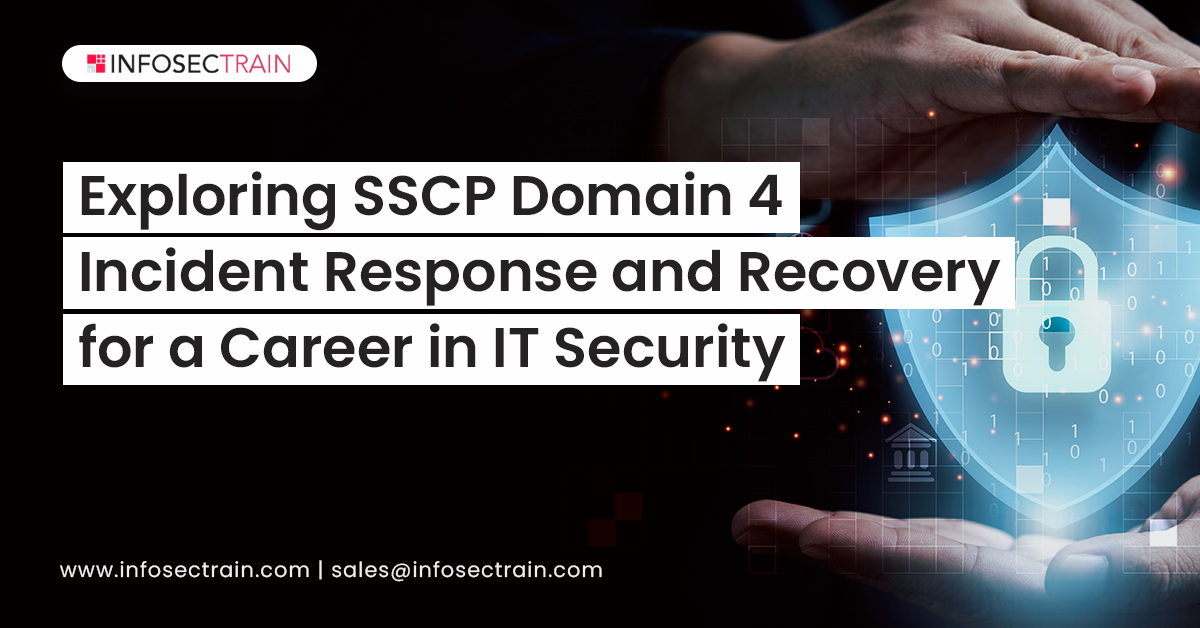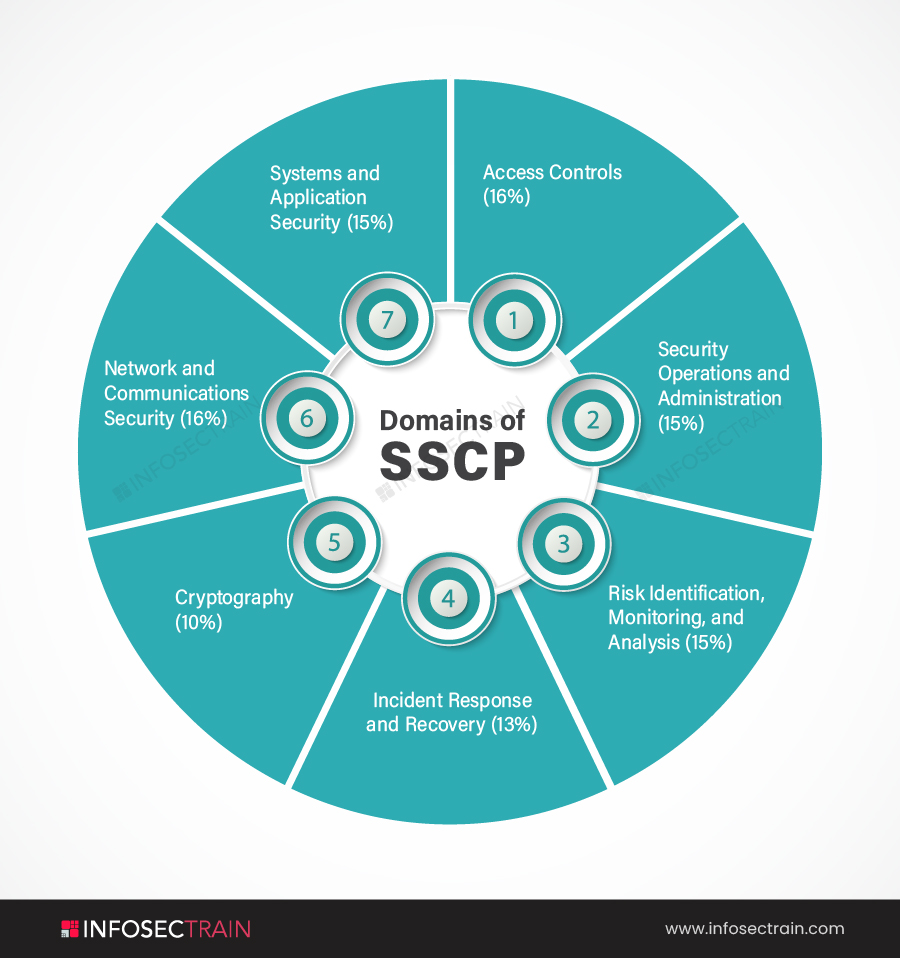Exploring SSCP Domain 4: Incident Response and Recovery for a Career in IT Security
New records are being set regarding data breaches and the sheer number of cyber-attacks on businesses, governments, and individuals. The sophistication of threats has also increased due to the use of emerging technologies like Machine Learning, Artificial Intelligence, and 5G and greater tactical coordination among hacker groups and state actors. The quicker your organization can detect and respond to a data breach or even a security incident, the less likely it is to severely impact your data, consumer trust, reputation, and revenue. The aftermath of an IT security breach or failure is managed through incident response. Before an incident occurs, it is essential to have a response strategy to limit the amount of damage caused by the event and save recovery time and costs for your company. It includes creating a proactive incident response plan, testing for and resolving system vulnerabilities, adhering to strong security best practices, and providing all incident response measures. This article will cover the fourth domain of SSCP: Incident Response and Recovery, and what you can expect in the SSCP exam from this domain.

Domains of SSCP

The seven SSCP domains are:
- Domain 1: Access Controls (16%)
- Domain 2: Security Operations and Administration (15%)
- Domain 3: Risk Identification, Monitoring, and Analysis (15%)
- Domain 4: Incident Response and Recovery (13%)
- Domain 5: Cryptography (10%)
- Domain 6: Network and Communications Security (16%)
- Domain 7: Systems and Application Security (15%)
Domain 4: Incident Response and Recovery
Domain 4 of the SSCP certification exam is Incident Response and Recovery. The Incident Response and Recovery domain comprise a weightage of 13% in the SSCP certification exam. This domain will introduce incident handling techniques such as investigations, reporting, escalation, and digital forensics. It will also cover the tasks required of a first responder, such as incident scene protection, evidence collecting, and handling, and restoring the environment to its pre-event form. This area will also address creating a business continuity plan and a disaster recovery plan, both of which must be employed in the event of a disaster. This domain will emphasize the significance of testing the plans and providing participants with exercises and drills. The subtopics covered in Incident Response and Recovery domain are:
- Support incident lifecycle
- Understand and support forensic investigations
- Understand and support Business Continuity Plan (BCP) and Disaster Recovery Plan (DRP) activities
1. Support Incident Lifecycle
This subsection will provide in-depth knowledge of the incident response lifecycle, including the most effective methods and the phases involved in the complete response and recovery. It discusses incident response preparation, detection/analysis, and the significance of post-event activities. Incident response preparation includes configuring security settings and testing an application for vulnerabilities. It will go over incident response frameworks to emphasize the importance of planning and improvement to achieve better response outcomes. You will also learn to analyze and document all aspects of the breach and implement new countermeasures.
2. Understand and Support Forensic Investigations
This subsection will cover digital forensic investigations, understanding and supporting forensic investigations. Digital forensics is the process of analyzing and preserving evidence from a data breach or cybercrime. It will go through forensic investigations, identify, collect, and acquire evidence, inspect and analyze the evidence, and present the results. Candidates for the SSCP should be familiar with the various phases of forensic investigations, comprehend them, study them, and know them in order. It will also cover live evidence, which is very dynamic data, as well as static evidence. It will cover both criminal behavior and Locard’s Principle. It will also go over the legal and ethical principles involved in digital forensic investigations.
3. Understand and Support Business Continuity Plan (BCP) and Disaster Recovery Plan (DRP) Activities
This subsection will explain the concepts of a Business Continuity Plan (BCP) and a Disaster Recovery Plan (DRP) and how you can use them to mitigate damage, restore business operations, and avoid significant business interruption. BCP and DRP are designed to help a business stay operating in the event of a cyberattack or other unforeseen circumstances. This section also teaches emergency response and post-disaster recovery processes through the use of the DRP. It will cover the emergency response plans and procedures, implement redundancy and backup, and test procedures.
SSCP with InfosecTrain
Enroll in the SSCP certification training course at InfosecTrain. We are one of the leading security training providers in the world. With the help of our highly educated and trained instructors, you may earn prestigious (ISC)² SSCP certifications. This SSCP training course will teach you how to handle incidents utilizing consistent, applied approaches to resolve and forensic investigation concepts, business continuity plans (BCR), disaster recovery plans (DCR), and more.







 1800-843-7890 (India)
1800-843-7890 (India)